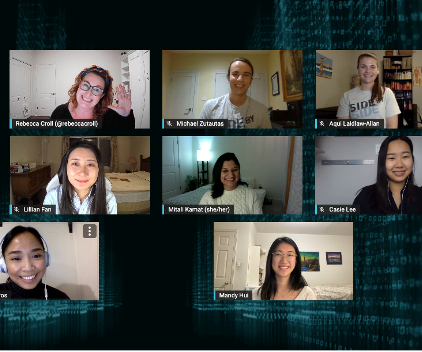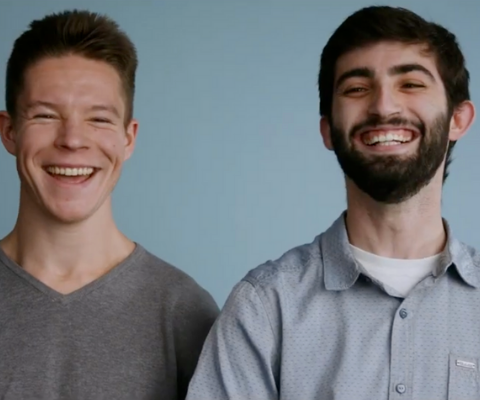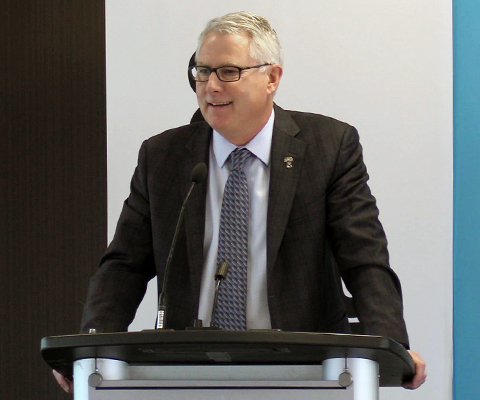Concours Innovations pour l’accessibilité : Cuisiner plus facilement
Texte sur l’écran : [Making the Kitchen Barrier-Free. Logo du concours Innovations pour l’accessibilité.]
Micah Rakoff Bellman, diplômé de la Carleton University :
We started the year by visiting four people with disabilities in their homes. Three of the four people we visited said, “Oh, I don’t cook. It’s too dangerous.” Or, “It’s too difficult,” or “It’s too physically demanding.”
I decided I needed to sort of understand it. So I got myself a wheelchair, cooked in it for about a week. I learned all kinds of stuff from that and through prototyping and interviews with the people we visited. After that research, I kind of arrived from this idea that the kitchen needed to be more accessible, to basically a platform on wheels that moves up and down to help people—either as a work surface or as a transfer surface for lifting and moving hot and heavy objects around the kitchen.
I’ve actually been lucky enough based on sort of having won the competition, now I’m undergoing building of full sized working prototypes in my own space.
Texte sur l’écran : [Logos du Canadian Innovation Exchange (CIX), du concours Innovations pour l’accessibilité, du gouvernement du Canada et d’Universités Canada.]
Micah Rakoff Bellman, diplômé de la Carleton University, a reconnu le besoin d’améliorer l’accessibilité des personnes en fauteuil roulant dans la cuisine. Il explique qu’il a remporté le concours de 2016 du programme Innovations pour l’accessibilité grâce à un prototype de surface de travail qui réduit les obstacles auxquels les personnes en fauteuil roulant sont confrontées lorsqu’elles cuisinent.
Vidéo et transcription disponibles en anglais seulement.
Catégorie : Collectivités fortes et inclusives, Programmes et bourses d’études, Recherche et technologie



